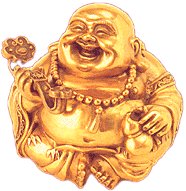|
|



|
|
HOME
Meditation J Krishnamurti The Role of The Teacher Inner Space Tradition & Dependence Meditation Tao Te Ching Dhammapada Buddhist Classics
|
Random Image
Krishnamurti
Tradition & Dependence
Conversation between Jiddu Krishnamurti
& Professor Jacob Needleman
...continued from part five
Excerpt from The Awakening of Intelligence
Needleman: ...I don't agree.
Krishnamurti: Let's go into it a little bit. See what has happened. I go with good men because in that ambience, in that atmosphere I see myself more clearly, because they are so good I see my idiocies.
Needleman: Sometimes it happens that way.
Krishnamurti: I am taking this.
Needleman: That is one example, right?
Krishnamurti: Or I am also good, therefore I live with them. Then I don't need them.
Needleman: No, we don't need them then. All right. (Laughter)
Krishnamurti: If I am good I don't need them. If it's only when I am not good and come into their presence, then I can see myself clearly. Then to see myself clearly I must have them. This is what generally takes place. They become important, not my goodness. This is what happens, sir, don't you know. This happens every day!
Needleman: But is there not such a thing as weaning the baby by blackening the breast? It happens that I do need this man, maybe from the beginning.
Krishnamurti: Wait, I am going to question it, I want to find out. First of all, if I am good I don't need them. I am like those hills and birds, I don't need them.
Needleman: Right. We can rule that out.
Krishnamurti: Because I am not good I need their company, because in their company I see myself clearly; I feel a breath of freshness.
Needleman: Or a horror of how bad I am.
Krishnamurti: Wait, the moment I have a horror of myself, in the larger sense of the word, I am merely comparing myself with them.
Needleman: No, not always. I can expose the image I have of myself as a lie.
Krishnamurti: Now I am questioning whether you need them to expose yourself as a liar.
Needleman: In principle, no.
Krishnamurti: No, not in principle. Either it is so, or it is not.
Needleman: That is the question.
Krishnamurti: Which means if I need them, then I am lost. Then I will forever hang on to them. Sir, this has happened since human relationships began.
Needleman: Yes it has. But it also happens that I hang on for awhile and then I right it.
Krishnamurti: Therefore why don't you, the good man, tell me: "Look, begin, you don't need me. You can watch yourself now clearly."
Needleman: Maybe if I told you that, you would take it utterly wrongly and misunderstand me completely!
Krishnamurti: Then what shall I do? Go on hanging onto you, run after you?
Needleman: Not what shall you do, but what do you do?
Krishnamurti: That's what I am saying. What people generally do is run after them.
Needleman: They generally do, yes.
Krishnamurti: And hold on to their skirts.
Needleman: But that is perhaps because the teacher was not intelligent.
Krishnamurti: No. He says, "Look, I can't teach you my friend, I have nothing to teach. If I am really good I have nothing to teach. I can only show."
Needleman: But he doesn't say it, he does it.
Krishnamurti: I say, "Look, I don't want to teach you, you can learn from yourself."
Needleman: Yes, all right. Suppose he says that.
Krishnamurti: Yes, he says learn from yourself. Don't depend. That means you, being good, are helping me to look at myself.
Needleman: Attracting you.
Krishnamurti: No. You are putting me in a corner so I can't escape.
Needleman: I see what you are saying. But it is the easiest thing in the world to escape.
Krishnamurti: I don't want to. Sir, you tell me, "Don't depend, for goodness has no dependence." If you want to be good you cannot depend on anything.
Needleman: Anything external, yes all right.
Krishnamurti: Wait, wait. On anything, external or inward. Don't depend on anything. It doesn't mean just don't depend on the postman, it means also inwardly don't depend.
Needleman: Right.
Krishnamurti: That means what? I depend. He has told me one thing which is, he tells me, "Don't depend on me or on anybody, your wife, your husband, your daughter, your politician, don't depend." That's all. He goes away. He leaves me with that. What shall I do?
Needleman: Find out if he is right, I would think.
Krishnamurti: But I do depend.
Needleman: That's what I mean.
Krishnamurti: I do depend on my wife, on the priest, or on some psycho-analyst - I do depend. Then I begin. Because he tells me the truth - you follow, sir? It is there, I have to work it out. So I have to find out if it is the truth, or if it is a falsehood. Which means I must exercise my reason, my capacity, my intelligence. I must work. I can't just say, "Well, he has gone". I depend on my cook! So I have to find out, I have to see the truth and the false. I have seen it. That doesn't depend on anybody.
Needleman: Right.
Krishnamurti: Even the company of the good doesn't teach me what is good and what is false, or true. I have to see it.
Needleman: Absolutely.
Krishnamurti: So I don't depend on anybody to find what is true and what is false.
...Excerpt from The Awakening of Intelligence



Contact • Feedback • Typo • Privacy • Home